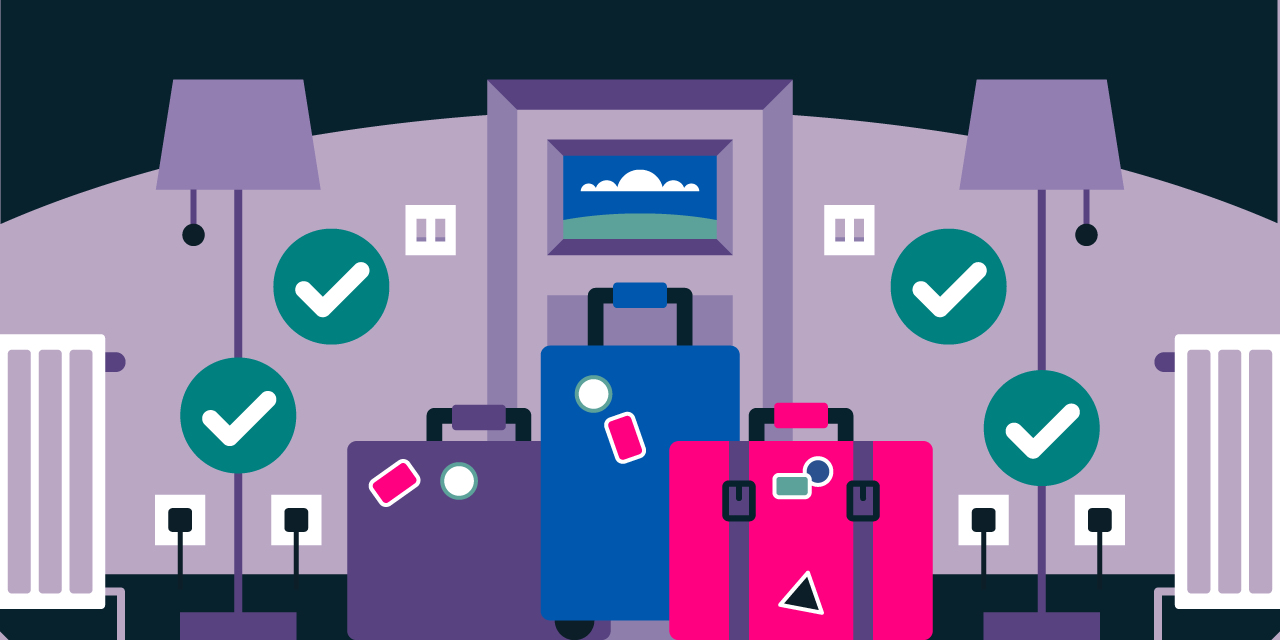Going on holiday? An energy-saving checklist
If you’re about to head away for a long holiday, you certainly don’t want to be fretting about your home energy use while you’re relaxing on the beach.
Just by taking a few simple steps, you can keep your home energy consumption as close to rock bottom as possible while you're away.
Wasted energy makes up 30% of the average energy bill - do something about it! Get more from your smart meter with Loop.
Spend a few minutes doing some energy housekeeping before you leave to avoid any unnecessary costs on your energy bills. Here are some quick and easy pre-holiday energy checks:
1. Turn your heating off
Heating and hot water are major contributors to most people’s household bills. But if you’re travelling in the warmer summer months then it’s worth considering turning your boiler off entirely. Whilst you may have already turned your heating off (though our recent research found that 50% of households still had their heating on during April) you should still turn off your water heating.
If you have electric underfloor heating, this is another one that's very easy to forget about, particularly if you have separate room-based systems that are not controlled centrally.
Of course, it’s different in the cold of winter, when you’ll need the heating on at least some of the time to stop pipes from freezing. If you have a smart thermostat, depending on the model, it will automatically turn down the heating when you’re away to help save energy, while ensuring it's warm enough to prevent your pipes from freezing.
2. Don’t leave anything on that you don't need to
There are some things like fridges and freezers that must stay on. The best advice here is to focus on efficiency and running costs when it’s time to replace them. An older or less efficient model could easily cost twice or three times as much to run as the most efficient models.
You may already be aware that appliances continue to drain energy, even when left on standby. However, the bigger energy stealers are the things that are left on all the time, either intentionally or accidentally. You might leave them on because you don’t realise how much they’re costing to run, or accidentally because you’ve just forgotten about them.

Things that fall into these categories that are worth turning off before you go away include set-top boxes and computers, plus easy-to-forget things like underfloor heating, heated towel rails and extra drinks fridges. Collectively, these make up what we call ‘Phantom Load’.
So before you leave home and set off on holiday, walk from room to room turning off everything you won't be using at the plug - television, microwave, any devices left on charge, heated towel rails, smart speakers, the lot!
3. Turn off lights
Don’t forget to turn those lights off before you head out the door. If you opt to leave some lights on for security, use an automatic timer to save some cash. Better still, investing in smart lighting means you’ll be able to control your lights remotely using an app on your phone.
If you’re going to use automatic lights while away, consider switching to LED lighting which is more energy-efficient and can save you money in the long term. You can make the switch to LED for both indoor and outdoor lighting.
4. Leave a full freezer
You may be surprised to know that to keep your fridge and freezer running as efficiently as possible - and to better retain the cold - it’s best to keep them full, even if that means adding bags of ice to your freezer or a jug of water in your fridge.
.png?width=300&name=Going%20on%20holiday%202%20(2).png)
Also, before you go check the back of your fridge/freezer is free of dust and there isn't a build-up of ice in your freezer. Lastly, check your fridge is set at 5 degrees Celsius or less.
5. Prepare for your return
If you get a smart thermostat, you can control your heating and hot water whilst you're away, turning them back on in time for when you get back home.
6. Download a free energy-saving app
Using a free energy-saving app like Loop can not only help you reduce your energy consumption before you leave, it allows you to monitor your home energy use even whilst you’re away, so you can have peace of mind that your home is running as it should.
Cut your energy bill with Loop
Loop is a FREE energy-saving app that links to your smart meter, analyses your energy use and shows you easy ways to save. On average, Loop users cut their electricity use by 16% and their gas use by 10%! How much could you save?








